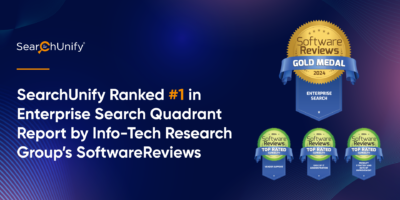
Only 21% of customers express confidence in the ability of established global brands to safeguard their personal information. This shows how trust in data security wavers.
On top of it, in the search for profitable growth, more and more companies are making major investments in generative AI. While this has yielded significant benefits, challenges like hallucinations and privacy breaches occasionally arise. In fact, the unsettling truth further comes to light with recent reports revealing the compromise of over 101,000 ChatGPT user accounts due to information-stealing malware in the past year alone, according to dark web marketplace data. This is a stark reminder of the real and present data security challenges.
So, what’s the plan? Well, first off, we need to spot the weak spots.
The first step to safeguarding against data breaches is detecting the problem areas. In this blog post, we’ll be discussing the data privacy challenges faced by enterprises with LLMs. Let’s get started!
The Daily Struggles of Data Privacy with Generative AI and LLMs
Organizations face several challenges in maintaining data privacy when using generative AI models like GPT-3.5. Here are some of the key challenges:
1. Data Handling and Storage Challenges
As per research, it is anticipated that the global generative AI market will achieve a valuation of $191.8 billion by the year 2032.
The stat is driven by heightened demand within diverse industries. However, deploying enterprise LLMs tailored for business needs poses a unique challenge. When training these models, the risk emerges that industry-specific knowledge imparted during training can inadvertently benefit competitors.
The fine line between customization and unintentional knowledge sharing underscores the complex hurdles enterprises face in maximizing LLM utility while safeguarding proprietary information.
2. Negligence Risks While Handling Confidential Information
Organizations using publicly hosted generative AI models, such as ChatGPT grapple with the hesitation to share sensitive information, fearing its potential dissemination to other users.
After all, the model learns from user interactions, magnifying the risk of leaked information being used maliciously.
Major players like Samsung and Apple have even prohibited employees from using ChatGPT at work, highlighting the perpetual vulnerability organizations face in the workplace, where the line between internal communication and external exposure blurs.
So, even though many organizations use generative AI models within the workplace, they are always at risk of their information being leaked and used maliciously. For instance, if a model has the authority to send emails on behalf of the sales team, it likely has access to their email accounts as well.
The possibility of confidential information leaks significantly rises when high-priority emails or documents aren’t guarded.
3. Roadblocks to Perfecting Data Anonymization

Anonymization poses intricate challenges when applied to generative AI models. One of the primary difficulties is striking the delicate balance between preserving privacy and maintaining data utility.
The nuanced nature of unstructured text and multimodal data requires innovative anonymization techniques.
Despite efforts, the risk of re-identification persists, emphasizing the need for sophisticated approaches to ensure privacy while maintaining the effectiveness of the model’s training.
4. Prompt Injection Vulnerabilities
The way generative AI models function is entirely dependent on what prompt is being given. Therefore, malicious attackers can use this to their advantage by using carefully crafted harmful prompts.
According to a study, such attacks can work on multiple LLMs and public interfaces.
For instance, your organization’s LLM is accessible to the public, but someone might misuse it by injecting a prompt that compels the model to bypass its profanity layer and generate offensive content.
Just imagine if a customer interacts with the model, only to encounter offensive language. However, the added complexity arises from the fact that the responses are articulated seamlessly, potentially leading customers to believe that the company has intentionally deployed a model that produces such content.
Identifying such a security breach becomes challenging, particularly without complaints, as generative AI models respond straightforwardly.
5. Cross-border Data Transfer Complexities

International organizations grapple with complex regulations when transferring data across borders. In an increasingly globalized market, these entities face a complex web of regulations and legal frameworks, which lead to compliance dilemmas, with the potential for penalties in cases of non-compliance.
Not to forget, ensuring data security during international transfers is a daunting task, as important information can be vulnerable to breaches. All these issues would altogether harm the reputation of your organization as well.
6. Vulnerabilities in Insecure Plugins
Plugins connecting generative AI models to external sources pose cybersecurity risks, accepting various text inputs.
Exploiting this vulnerability can compromise systems and gain unauthorized access, risking disruption of operations and theft of sensitive data. Therefore, robust security measures are essential when employing plugins with the models.
Unlocking Solutions for Generative AI Model-related Privacy Challenges
Now that you’re familiar with the numerous privacy concerns tied to sharing sensitive data with generative AI models, it is time to start planning ahead.
Ready to shield your organization’s confidential data from potential breaches while leveraging the power of generative AI models? If you’re feeling a bit lost on where to begin, fret not!
Stay tuned for our next blog, where we’ll dive deep into actionable strategies to fortify your data privacy defenses in the realm of generative AI. Because when it comes to data, privacy is not just a feature; it’s a necessity!


















